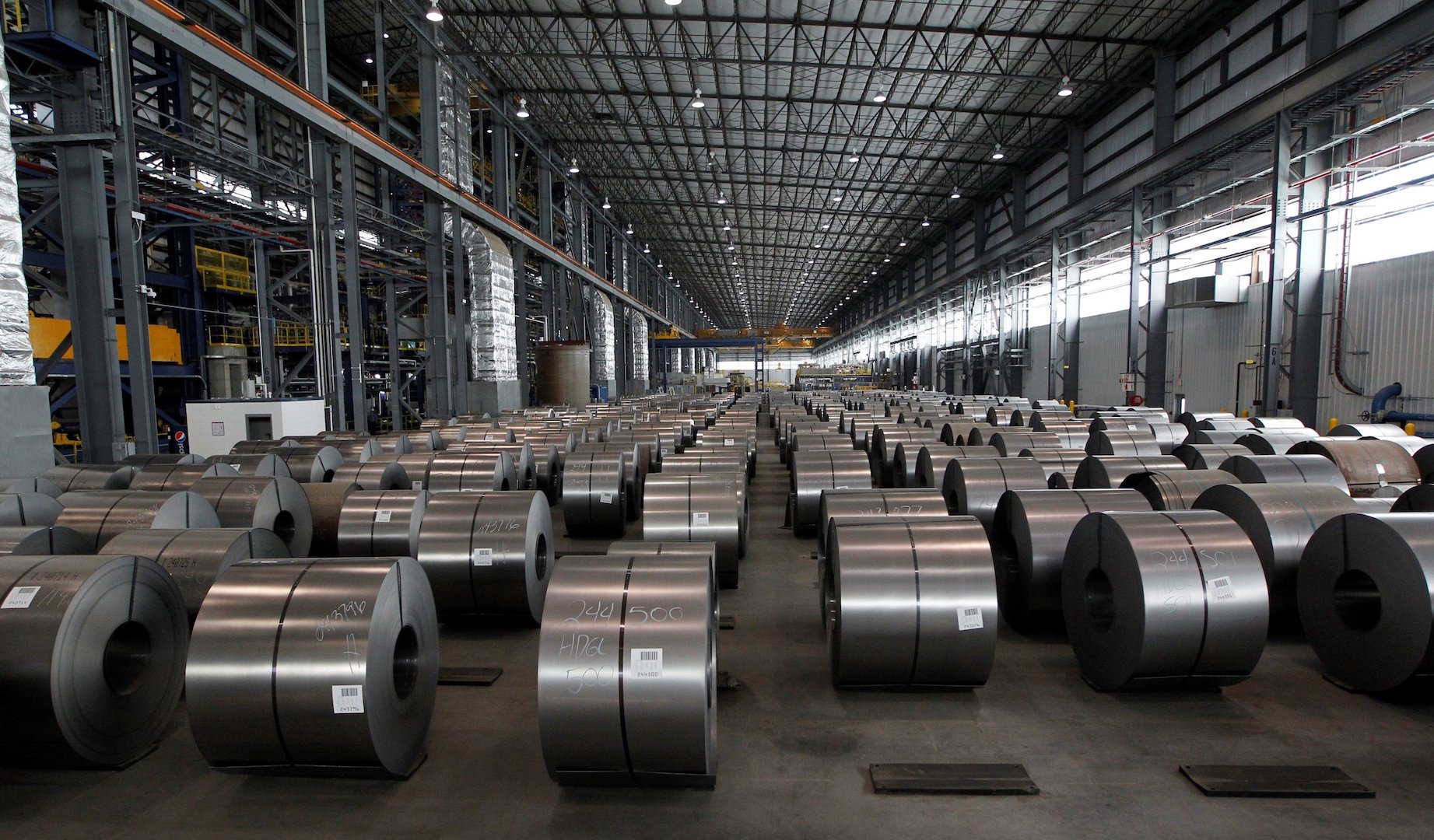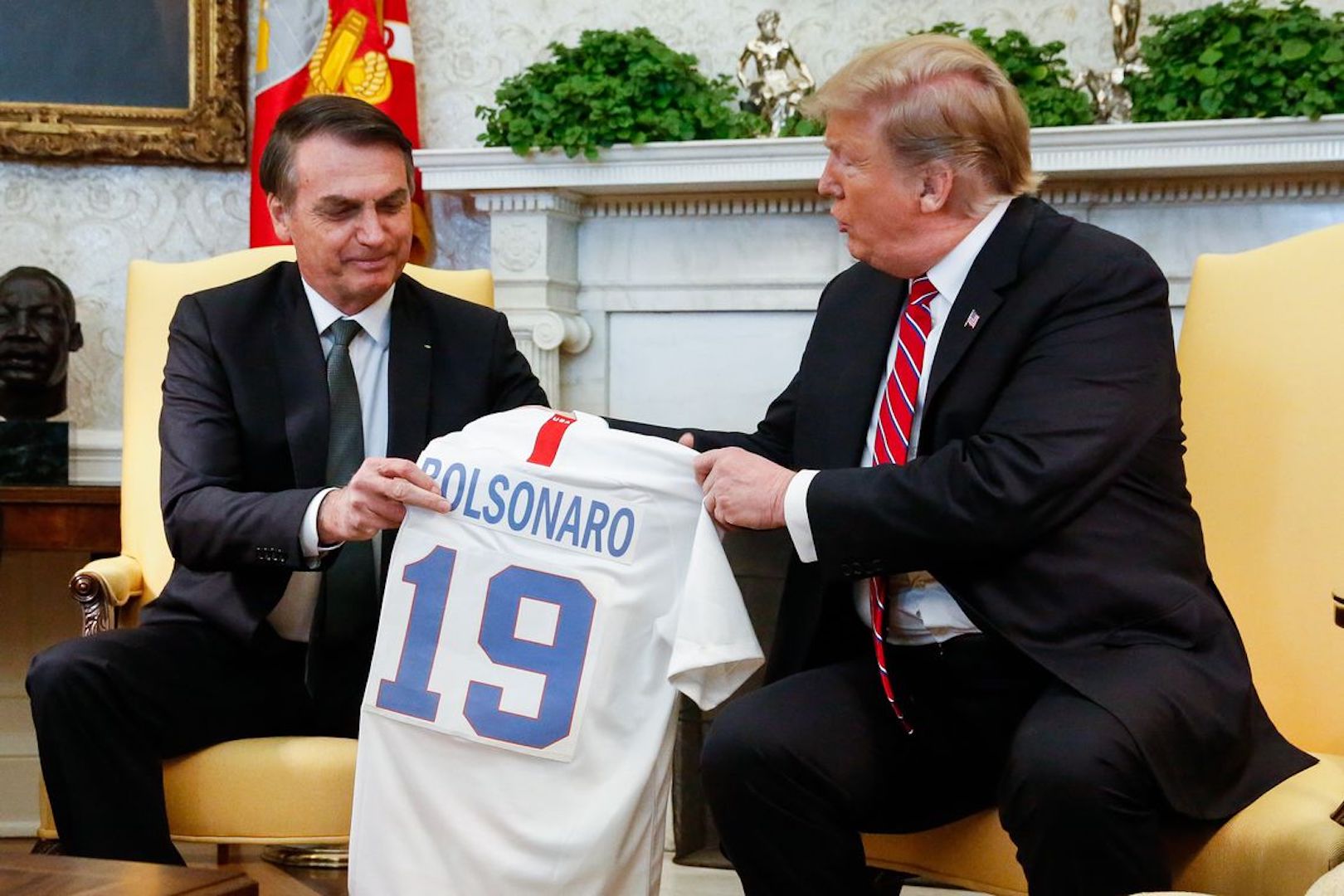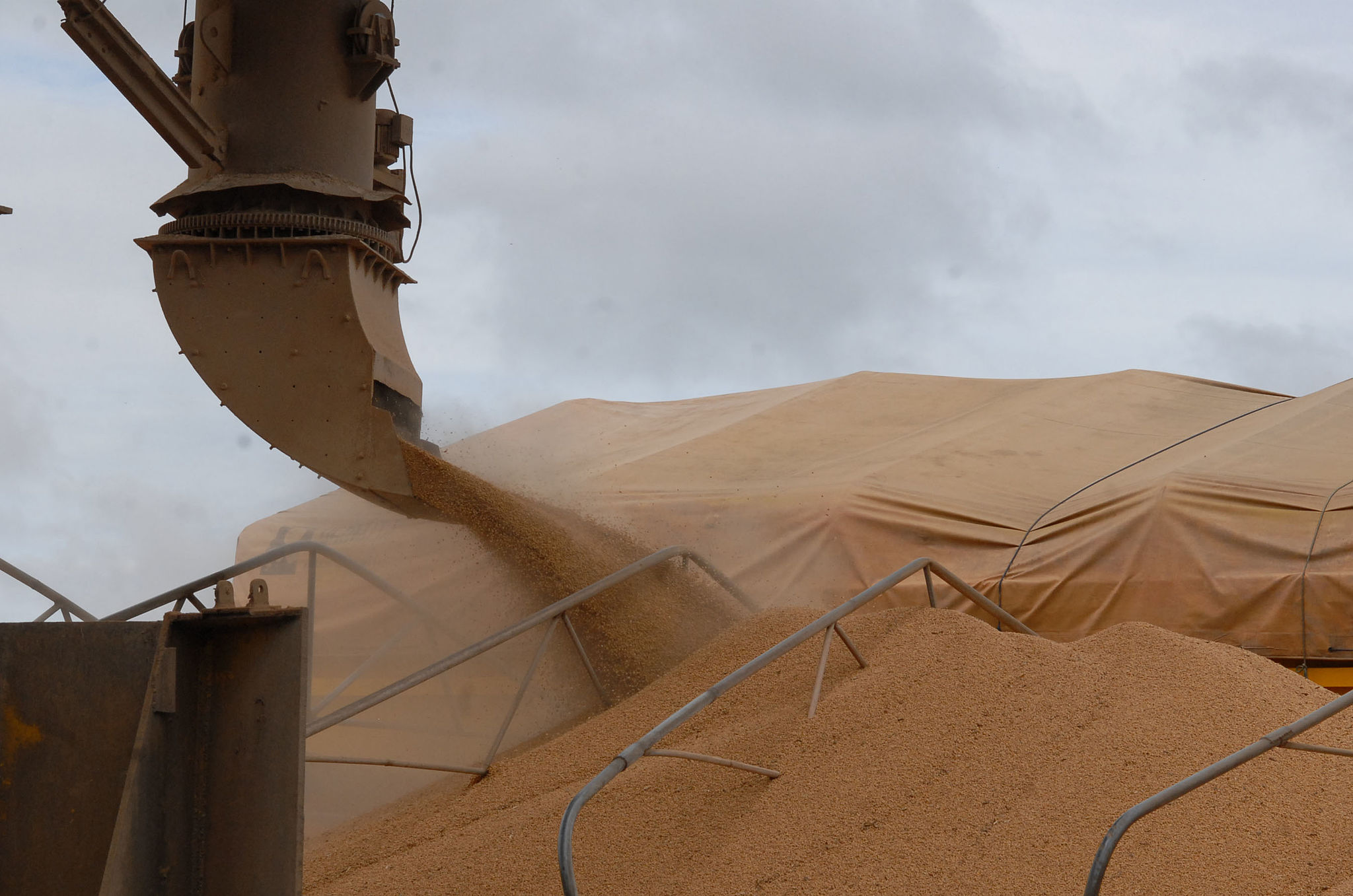SÃO PAULO, BRAZIL – The Brazilian government was taken by surprise on Monday morning, after US President Donald Trump announced he was restoring tariffs on steel and aluminum exports coming from the South American country.

“Brazil and Argentina have been presiding over a massive devaluation of their currencies. which is not good for our farmers. Therefore, effective immediately, I will restore the tariffs on all steel & aluminum that is shipped into the U.S. from those countries,” said Trump
Taken aback after repeatedly stating that he had a ‘close’ relationship with Trump, Brazilian President, Jair Bolsonaro, told reporters that he would have to discuss the announcement with Economy Minister, Paulo Guedes, before issuing an official response.
“I’m going to talk to Paulo Guedes now. If that’s the case (tariff restoration), I will call Trump; I have an open channel with him. I’ll talk to Paulo Guedes and then give you an answer,” he told reporters outside the Presidential Palace.
In a joint statement, the Ministry of Foreign Affairs, the Ministry of Economics and the Ministry of Agriculture stated: “The Brazilian government has noted President Donald Trump’s statement about the possible imposition of a surcharge on Brazilian steel and is already in contact with spokespersons in Washington on the issue. The government will work to defend Brazil’s trade interests and ensure smooth trade with the US, with the object of broadening trade and deepening bilateral relations, to the benefit of both countries.”

Reactions from Brazil’s steel industry and government officials were immediate.
“The Brazil Steel Institute is perplexed with the decision announced today by US President Donald Trump…on the grounds that these countries have led a devaluation of their currencies, and that this is not good for US farmers,” said a press release by the main steel manufacturers’ association in Brazil.
The entity went on to state that it “stresses that the exchange rate in the country is free, and there is no initiative by the government to artificially devalue the Real and the decision to tax Brazilian steel as a way to ‘compensate’ the American farmer is a retaliation against Brazil, which is not consistent with the partnership relations between the two countries”.
Brazil’s Vice President, Hamilton Mourão, stated that the government was in no way forcing a devaluation of the Brazilian currency to help sell more abroad.
“We had President Trump early this morning saying that he will increase the steel and aluminum tariffs in Brazil and Argentina because we are artificially devaluing our currencies. That is not what is happening. This is characteristic of this geopolitical tension that is happening, that generates protectionism,” the VP told reporters after an event in São Paulo.
According to data from the Ministry of Economy, Brazilian exports to the United States of semi-manufactured iron and steel totaled US$2.57 billion from January to November of this year. The volume was 65.5 percent of the country’s total steel imports.
Brazil’s aluminum producers’ association, Abal, said that the latest announcement does not affect Brazilian aluminum exports to the North American partner. According to the entity since June of last year Brazilian exports of aluminum products to the US have been surcharged.
“This arrangement (of tariffs) was ratified last year with the Trump administration, when it opened the possibility of replacing the surcharge with limited export quotas. At the time, we opted for the surcharge and have continued to pay ever since,” said a press statement issued by Abal.
Despite many economic analysts’ suggestion that the US’s decision is a retaliation for Brazil selling soybean to China, President Bolsonaro said that he did not believe his ‘ally’ was unhappy with the fact that China was now importing from Brazil what was once exported from the United States.

“I don’t see this as retaliation,” Bolsonaro announced during an interview with Itatiaia Radio.
“I’m going to call him so that he doesn’t penalize us … Our economy basically comes from commodities, it’s what we’ve got. I hope that he understands … and I’m almost certain he’ll listen to us,” added the President.
Experts on foreign relations, however, disagree with Brazil’s president that the South American country has a friend in the Trump Administration.
“Countries do not have friends, they have interests. The relationship has to be made around our interests. It is not possible to expect that personal relationships will solve these problems,” former Brazilian Ambassador Rubens Barbosa to the United States under Fernando Henrique Cardoso was quoted as saying by news agency Reuters.
Before Monday’s announcement, the US import rates for Brazilian steel was 0.9 percent. Although the US leader said the measure would be effectively immediately he did not specify whether the surcharge for the Brazilian product will be the same as the one temporarily adopted last year (twenty-five percent on steel) or another percentage.
From the beginning of the year until last November 29th, the US dollar has appreciated by 9.43 percentage against the Brazilian real, lowering the prices of Brazilian exports and increasing the competitiveness of products abroad.

